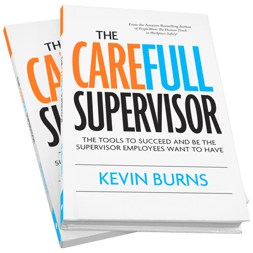Every industrial organization strives to achieve safety excellence. However, many companies find themselves stuck at a performance plateau despite having solid safety programs in place. This article explores why developing frontline supervisor leadership skills is crucial for breaking through these plateaus and creating a sustainable safety culture that protects every worker.

Many companies get stuck at the same level of safety performance, even when they have good safety programs. It's like hitting an invisible wall - no matter what they try, they can't seem to move the needle more. The solution isn't adding more rules or procedures. Instead, the key is helping frontline supervisors become better leaders.
Why Companies Get Stuck
Most companies already have the basics of safety covered. They have rules about wearing safety equipment, regular safety meetings, and ways to report accidents when they happen. These things are important, but they're just the beginning. But, to make a workplace truly safe, companies need to create an environment where safe work practices become second nature - as natural as breathing. It should be woven into the fabric of how work gets done, not something extra to think about.
The Leadership Challenge
Most supervisors get their jobs because they're good at the technical parts of their work. They might be excellent welders, machinists, or operators. But being good at your job doesn't automatically mean you're good at leading others. Many supervisors struggle with things like having difficult conversations about safety, building trust with their teams, or knowing how to motivate people to work safely.
How Better Leadership Makes a Difference
When supervisors learn to be better leaders, safety improves in several important ways. First, they get better at talking about safety. Instead of just telling people to "be careful," they learn to explain why safety matters and how to do things safely. They also get better at listening to their workers' concerns and ideas about safety.
Good leaders also know how to coach their teams. They spend time watching how work gets done and help people find safer ways to do their jobs. They catch people doing things right and praise them for working safely. When they see unsafe behavior, they know how to address it without making people defensive.
Trust is another big factor. When workers trust their supervisors, they're more likely to speak up about safety problems. They're also more willing to report near-misses. This helps everyone learn and prevent future incidents.
What Skills Supervisors Need
To break through the safety plateau, supervisors need training in several key areas:
Supervisors Work for Employees: Understanding their roles as being the support for the team, supervisors become better-positioned to set their people up to win.
Better Communication: This includes learning to really listen to workers' concerns and give clear, helpful feedback about safety.
Coaching Skills: Supervisors need to learn how to observe work safely and help people improve without making them feel criticized.
Leading Change: They need to understand why people resist change and how to get everyone on board with new safety initiatives.
Making it Happen
Companies that invest in teaching these leadership skills to their supervisors see real improvements. Workers become more involved in safety programs, speak up more often about safety concerns, and, most importantly, fewer people get hurt at work.
The key message is simple: technical knowledge alone isn't enough. When supervisors combine their technical expertise with good leadership skills, they can create a workplace where safety isn't just about following rules - it's about looking out for each other and adopting an attitude of care for themselves and their fellow workers.
Breaking through safety performance plateaus requires a focused approach to developing frontline leadership capabilities. The PeopleWork Supervisor Academy offers a comprehensive solution designed specifically for industrial supervisors. Our program helps supervisors transform from technical experts into safety leaders who can drive cultural change.





